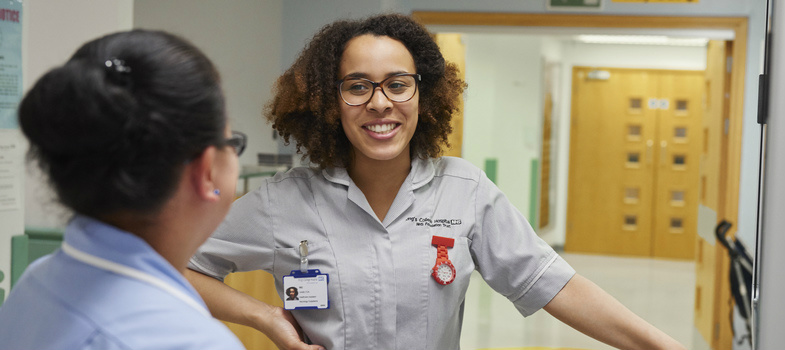4.7 Getting medication on time
Exercise 4.1
We have just learned why it is so important that people with Parkinson’s get their medication on time, every time. Listen to these recordings of some people with Parkinson’s UK talking about their personal experiences of the consequences of not getting their medication on time.
Transcript
I had to hand over my drugs. And they were administered to me. That made me feel anxious because I was worried about it being late. And they were late a couple of times, maybe more, to the tune of half an hour to an hour. And that might not seem a lot but for Parkinson's people, that is huge because you go off. And in my case, I slow right down and I freeze and I find it very difficult to walk. And that's very difficult when you are non weight- bearing after having just had an operation on your foot. So yeah, it was, that bit was difficult. With the problems with my drugs, I was far more unsteady on my feet than maybe I would have been. And I fell over. And that meant that I had problems with my foot even more. And I ended up in hospital for longer.
Transcript
I was then left with an anaesthetist and a cleaner and because I had bled everywhere and because of the tremor, it had gone everywhere. And the anaesthetist asked me if I could just hop off of the trolley. And I explained that no, I couldn't. My meds were three quarters of an hour late. And he would have to get them for me our of my dressing gown pocket, and actually get them out and give them to me individually because I had trauma on both sides of my body by that time. And I couldn't pick the tablets out. When I was taken back to the ward, the staff and patients were really shocked that the man who had walked off the ward quite happily had been brought back in on a trolley and was a mass of writhing limbs.
Think about what you have heard and consider the impact on the person with Parkinson's, the hospital staff and other patients. Write down your thoughts in your reflection log [Tip: hold Ctrl and click a link to open it in a new tab. (Hide tip)] – you may want to use the following questions as a prompt.
- What could have been done differently?
- What was the impact on the person with Parkinson’s and their family?
- What, if any, was the impact on the ward and hospital staff?
Answer
What could have been done differently?
- Hospital staff should have listened to the person with Parkinson’s.
- Hospital staff – including doctors – should have had training on Parkinson’s and the importance of medicine management.
- Patients who are able should have been allowed to self-medicate.
- Ward staff should have sought help from a Parkinson’s specialist when the person’s condition was getting worse.
- A system should have been introduced so that Parkinson’s nurses are notified when a person with Parkinson’s is admitted.
What was the impact on the person with Parkinson’s?
- Their symptoms were left untreated.
- Their condition got worse.
- The patients experienced anxiety and distress.
- The person with Parkinson’s spent a longer time in hospital and had a longer recovery period.
What, if any, was the impact on the ward and hospital staff?
- Ward routines were severely disrupted.
- Other patients appearing distressed.
- The patient needed much more care from staff.
- The situation caused shock and anxiety for staff who were concerned that the patient was not receiving the correct care.
4.6 The importance of medication timing
